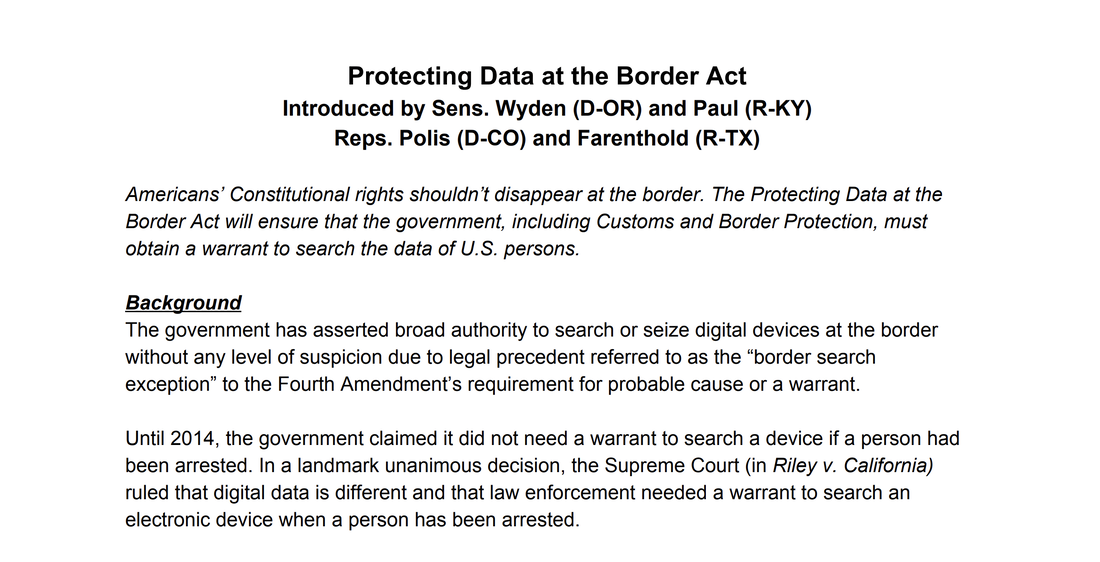|
Over the summer, the Project for Privacy and Surveillance Accountability reported that Customs and Border Protection is routinely demanding personal passwords to conduct searches of files inside the digital devices of Americans returning from abroad. Some of these inspections are performed through eyeball scans. Some are done by plugging a thumbnail drive into devices to conduct a deep scan of contents.
PPSA asked: “Do Fourth Amendment rights against unreasonable searches and seizures apply at the border? Or is the border zone of airports and other ports of entry a kind of legal no man’s land?” We reported on the plight of a veteran, a journalist, an artist, a businessman and an engineer at NASA’s Jet Propulsion Laboratory, who had their privacy violated in this way while going through customs. Their petition, Merchant v. Mayorkas, was denied by the U.S. Supreme Court this summer, punting on the critical question of whether Americans have Fourth Amendment rights at the border. Fortunately, what cannot be achieved in the courts can be debated and perhaps passed in the Congress. Late last week, Sens. Ron Wyden (D-OR) and Rand Paul (R-KY) introduced the Protecting Data at the Border Act, which would require law enforcement to obtain a warrant before searching the phones and laptops of Americans at the border. “Americans’ Constitutional rights shouldn’t disappear at the border,” Sen. Wyden said. “The Protecting Data at the Border Act will ensure that the government, including Customs and Border Protection, must obtain a warrant to search the data of U.S. persons.” This bill would harmonize the practice at the border with a landmark Supreme Court decision, Riley v. California, that ruled that law enforcement needed a warrant to search the electronic devices of a person who has been arrested. The Court’s Riley decision, which was unanimous, describes how digital inspections are especially insidious. The Court declared that “cell phones differ in both a quantitative and qualitative sense from other objects that might be carried on an arrestee’s person … many of the more than 90 percent of American adults who own cell phones keep on their person a digital record of nearly every aspect of their lives.” The Court concluded, “an element of pervasiveness characterizes cell phones” that is not found in physical records. The Protecting Data at the Border Act follows up on the logic of Riley, extending the affirmed rights of an arrested person to all U.S. persons at the border. In addition to requiring probable cause warrants to inspect devices, the Wyden-Paul bill would:
It would, however, allow for emergency exceptions based on existing wiretap statutes and the USA Freedom Act. In some instances, the government would need to seek a warrant after an inspection. At this time of partisan gridlock, it is heartening to see a bipartisan bill that should be an easy one for Congress to pass. Comments are closed.
|
Categories
All
|


 RSS Feed
RSS Feed